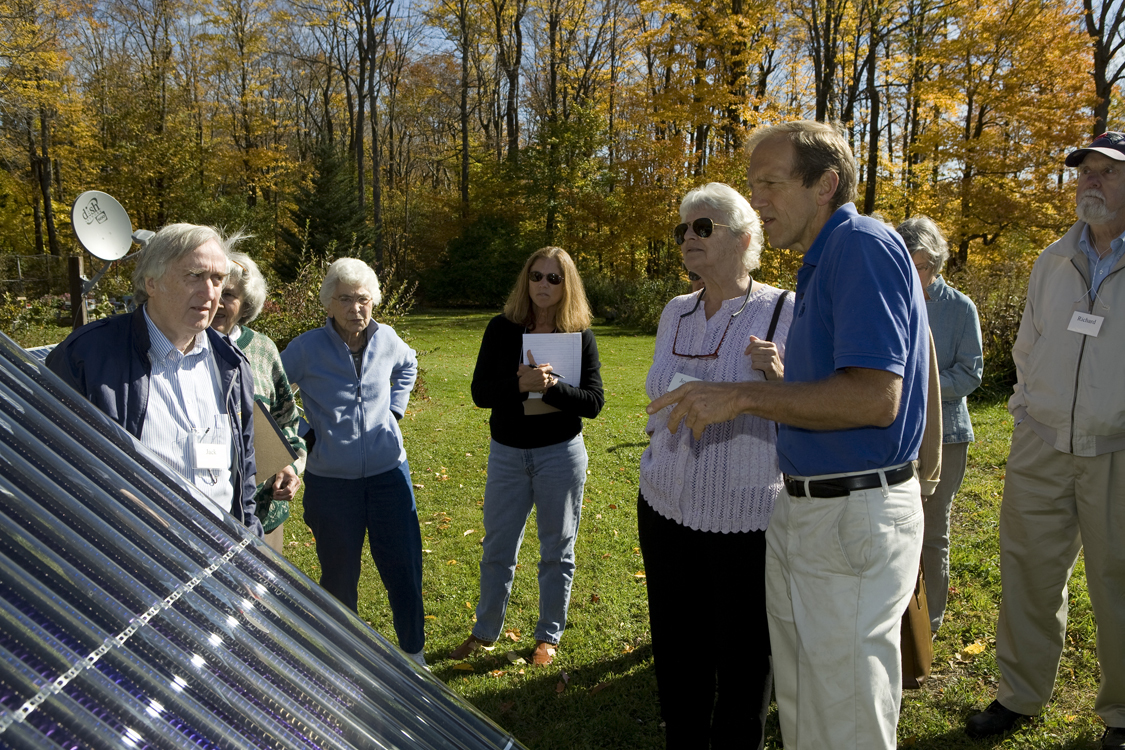New partnership connects retirees to conservation
By Stephen D'Angelo

A new partnership between the Cornell Institute for Translational Research on Aging and The Nature Conservancy is responding to two critical trends in society today – mounting concern about environmental sustainability and an aging population.
The Conservation Retirees in Service to the Environment program, an environmental education and leadership training program for adults over 60, is a new collaboration between the two organizations that builds on the original Retirees in Service to the Environment program (RISE), seeking to create environmental leaders who will play an active role as conservancy volunteers and environmental stewards in their communities.
“This program addresses the critical intersection of two important issues – environmental sustainability and an aging population,” said Karl Pillemer, the Hazel E. Reed Professor of Human Development, professor of gerontology in medicine at Weill Cornell Medicine and director of the Bronfenbrenner Center for Translational Research.
“Retirees are an underutilized resource who have the time, talent and skills to help address issues like climate change, air and water pollution, waste management and the protection of natural areas.”
Bill Toomey, director of The Nature Conservancy’s Forest Health program, said, “The Nature Conservancy is excited to be partnering with Cornell to creatively engage older adults in the conservation actions that they can take individually or as part of a community in the care and stewardship of trees and natural habitats in their own backyards, neighborhoods and community.”
Program organizers conducted an extensive review of the research literature, focus group studies with older adult retirees and a pilot evaluation study. Based on the best available research evidence and practices in the field, including research conducted on aging and environmental issues at Cornell, the project provides 30 hours of training over a six-week period, culminating in a capstone volunteer project.
The training consists of a full-day introductory workshop, four weekly environmental workshops and a capstone stewardship project in the community and provides knowledge from expert speakers on climate change, water quality, soil contaminants, waste management and energy use.
“Through training in leadership and communication skill development, our objective is to improve participants’ effectiveness as environmental volunteers,” Pillemer said. “The educational component of the program also includes hands-on learning experience, such as field trips.”
The conservancy is interested in engaging community members of all ages in the care and stewardship of trees through the Healthy Trees, Healthy Cities program. “We are also looking to support individual and community action through our Habitat Network program to create and maintain local habitats including pollinator, rain and food gardens that can help support wildlife populations and connect people to nature,” Toomey said.
According to Pillemer, the program provides more than environmental improvements to local communities, it also benefits the volunteers themselves.
“It provides potential physical and mental health benefits to participating older adults, including physical activity, exposure to nature and social opportunities, as well as a greater sense of purpose through the chance to improve the world for future generations.”
The Cornell Institute for Translational Research on Aging promotes translational research on aging, including the development, implementation and dissemination of innovative, evidence-based intervention programs. A focus of the institute, housed in the Bronfenbrenner Center for Translational Research, is to promote the social integration of older people in the form of meaningful roles and relationships.
Stephen D'Angelo is assistant director of communications for the College of Human Ecology.
Media Contact
Get Cornell news delivered right to your inbox.
Subscribe